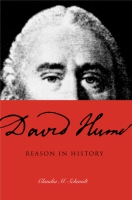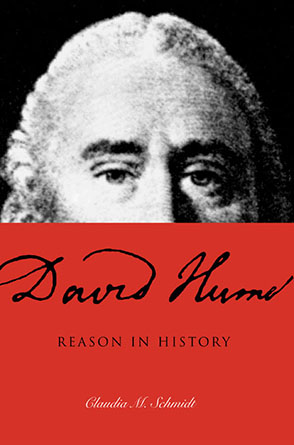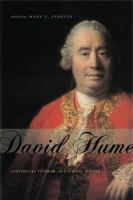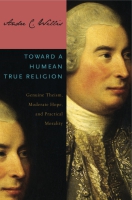David Hume
Reason in History
Claudia M. Schmidt
“A courageous and valuable attempt to see Hume whole—to see the unity and consistency in his broad-ranging work as a philosopher, political analyst, economist, historian, and critic of religion.”
- Description
- Reviews
- Bio
- Subjects
Against the charges that Hume holds no consistent philosophical position, offers no constructive account of rationality, and sees no positive relation between philosophy and other areas of inquiry, Schmidt argues for the overall coherence of Hume's thought as a study of "reason in history." She develops this interpretation by tracing Hume's constructive account of human cognition and its historical dimension as a unifying theme across the full range of his writings. Hume, she shows, provides a positive account of the ways in which our concepts, beliefs, emotions, and standards of judgment in different areas of inquiry are shaped by experience, both in the personal history of the individual and in the life of a community.
This book is valuable at many levels: for students, as an introduction to Hume's writings and issues in their interpretation; for Hume specialists, as a unified and intriguing interpretation of his thought; for philosophers generally, as a synthesis of recent developments in Hume scholarship; and for scholars in other disciplines, as a guide to Hume's contributions to their own fields.
“A courageous and valuable attempt to see Hume whole—to see the unity and consistency in his broad-ranging work as a philosopher, political analyst, economist, historian, and critic of religion.”
“So, even a remarkable effort cannot produce a book that is everything to everybody. There is something here, however, for almost everyone.”
Claudia M. Schmidt is Assistant Professor of Philosophy at Marquette University.
Also of Interest
Mailing List
Subscribe to our mailing list and be notified about new titles, journals and catalogs.






